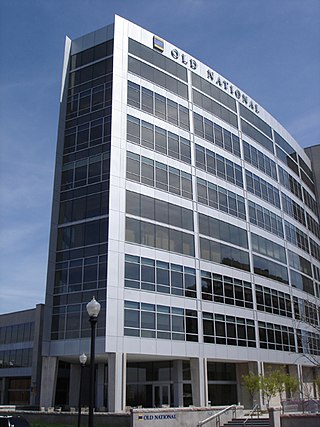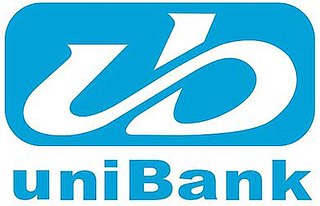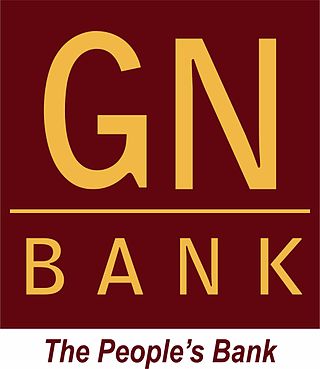Washington Mutual, Inc. was an American savings bank holding company based in Seattle. It was the parent company of WaMu Bank, which was the largest savings and loan association in the United States until its collapse in 2008.

The ING Group is a Dutch multinational banking and financial services corporation headquartered in Amsterdam. Its primary businesses are retail banking, direct banking, commercial banking, investment banking, wholesale banking, private banking, asset management, and insurance services. With total assets of US$967.8 billion, it is one of the biggest banks in the world, and consistently ranks among the top 30 largest banks globally.

Banco Santander, S.A., doing business as Santander Group, is a Spanish multinational financial services company based in Madrid and Santander in Spain. Additionally, Santander maintains a presence in all global financial centres as the 19th-largest banking institution in the world. Although known for its European banking operations, it has extended operations across North and South America, and more recently in continental Asia. It is considered a systemically important bank by the Financial Stability Board.

Old National Bank is an American regional bank with nearly 200 retail branches operated by Old National Bancorp and based in Chicago and Evansville, Indiana. With assets at $23.0 billion and 162 banking centers, Old National Bancorp is the largest financial services bank holding company headquartered in Indiana and one of the top 100 banking companies in the U.S. Its primary banking footprint is in Illinois, Indiana, Kentucky, Michigan, Minnesota, and Wisconsin.
Great Western Bank was a large retail bank that operated primarily in the Western United States. Great Western's headquarters were in Chatsworth, California. At one time, Great Western was one of the largest savings and loan in the United States, second only to Home Savings of America. The bank was acquired by Washington Mutual in 1997 for $6.8 billion.
China Banking Corporation, commonly known as Chinabank, is a Filipino bank established in 1920. It was the first privately owned local commercial bank in the Philippines initially catering to the banking needs of Chinese Filipino entrepreneurs. The bank offers a wide range of banking services, including deposits, investments, trust, cash management, remittance, and loans. It also offers insurance brokerage, stock brokerage, and bancassurance services through its subsidiaries and affiliate.
Beal Bank is an American bank, which was founded by Texas-based entrepreneur D. Andrew "Andy" Beal. It includes two separately chartered banks, Beal Bank and Beal Bank USA. Each entity is insured by the Federal Deposit Insurance Corporation (FDIC).
Kent Reliance is a banking services provider and trading name of OneSavings Bank plc, based in Kent, England. It was founded in 1898 as the Chatham & District Reliance Building Society, changing its name to the Kent Reliance Building Society in 1986 following the merger with the Herne Bay Building Society.

Trustco Bank is a commercial bank within the United States. Trustco was founded in Schenectady, New York in 1902 and is headquartered in Glenville, New York. Trustco has 145 branches spread among New York, Florida, Massachusetts, New Jersey, and Vermont. Trustco Bank is an Equal Housing Lender and an Insured member of the Federal Deposit Insurance Corporation. The company operates under the slogan, "Your Home Town Bank."
China's banking sector had CN¥319.7 trillion in assets at the end of 2020. The "big four/five" state-owned commercial banks are the Bank of China, the China Construction Bank, the Industrial and Commercial Bank of China, and the Agricultural Bank of China, all of which are among the largest banks in the world As of 2018. The Bank of Communications is sometimes included. Other notable big and also the largest banks in the world are China Merchants Bank and Ping An Bank.
Before Uganda's independence in 1962, the main banks in Uganda were Barclays ; Grindlays, Standard Bank and the Bank of Baroda from India. The currency was issued by the East African Currency Board, a London-based body. In 1966, the Bank of Uganda (BoU), which controlled the issue of currency and managed foreign exchange reserves, became the central bank and national banking regulator. The government-owned Uganda Commercial Bank and the Uganda Development Bank were launched in the 1960s. The Uganda Development Bank is a state-owned development finance institution, which channeled loans from international sources into Ugandan enterprises and administered most of the development loans made to Uganda.

A bank is a financial institution that accepts deposits from the public and creates a demand deposit while simultaneously making loans. Lending activities can be directly performed by the bank or indirectly through capital markets.
The New York State Banking Department was created by the New York Legislature on April 15, 1851, with a chief officer to be known as the Superintendent. The New York State Banking Department was the oldest bank regulatory agency in the United States.

Kwabena Duffuor was the Finance Minister of Ghana. He has also served as the governor of the Bank of Ghana. He was named as one of the four best Central Bank Governors in the World at an IMF/World Bank meeting in 1999.
Bank United Corporation, headquartered in Houston, Texas, was a broad-based financial services provider and the largest publicly traded depository institution headquartered in Texas before its merger with Washington Mutual in 2001. Bank United Corp. conducted its business through its wholly owned subsidiary, Bank United, a federally chartered savings bank. The company operated a 155-branch community banking network in Texas, including 77 in the Dallas/Fort Worth Metroplex, 66 in the greater Houston area, five in Midland, four in Austin, and three in San Antonio; operated 19 SBA lending offices in 14 states; was a national middle market commercial bank with 23 regional offices in 16 states; originated mortgage loans through 11 wholesale offices in 10 states; operated a national mortgage servicing business serving approximately 324,000 customers, and managed an investment portfolio. As of June 30, 2000, Bank United Corp. had assets of $18.2 billion, deposits of $8.8 billion, and stockholder's equity of $823 million.
Consolidated Bank of Kenya commonly known as Consolidated Bank, is a commercial bank in Nairobi, Kenya, East Africa's largest economy. It is licensed by the Central Bank of Kenya.
UT Bank (UTB), formally known as UT Bank Ghana Limited, was a commercial bank in Ghana until 2017 when its license was revoked by the Bank of Ghana due to severe impairment of their capital and was taken over by GCB Bank.

uniBank (Ghana) Limited, commonly known as uniBank, was an indigenous private bank in Ghana, West Africa. The bank was placed in administration in March 2018 and subsequently consolidated as part of the Ghana Government's handling of its banking crisis. The collapse was controversial as it involved allegations of trading insolvently, and 5 billion cedis in illegal and related party transactions, unlawful loans and illegal acquisition of bank assets by Directors and shareholders. Founded by a former governor of the Bank of Ghana, uniBank was one of the thirty-five commercial banks licensed to operate in Ghana.

GN Bank is an indigenous private Ghanaian owned commercial bank in Ghana. GN Bank is one of the private commercial banks licensed to operate in Ghana. GN Bank has over 260 locations across the 10 regions of Ghana.
The Ghana banking crisis was a severe banking crisis that affected Ghana between August 2017 and January 2020. The Bank of Ghana (BoG) allowed several indigenous banks to be taken over by private companies between August 2017 and January 2019 after Nana Akufo-Addo was elected president in December 2016. Most of the indigenous banks had been at the risk of defaulting on their loans, as they had been affected by the economic fallout of the Great Recession, which caused the events leading up to the Arab Spring that occurred in North Africa beginning in 2010. The crisis is the most severe economic crisis to affect Ghana since it became an independent country in 1960. The COVID-19 pandemic arrived in Ghana towards the end of the banking crisis in 2020, dealing further damage to the country's economy.









